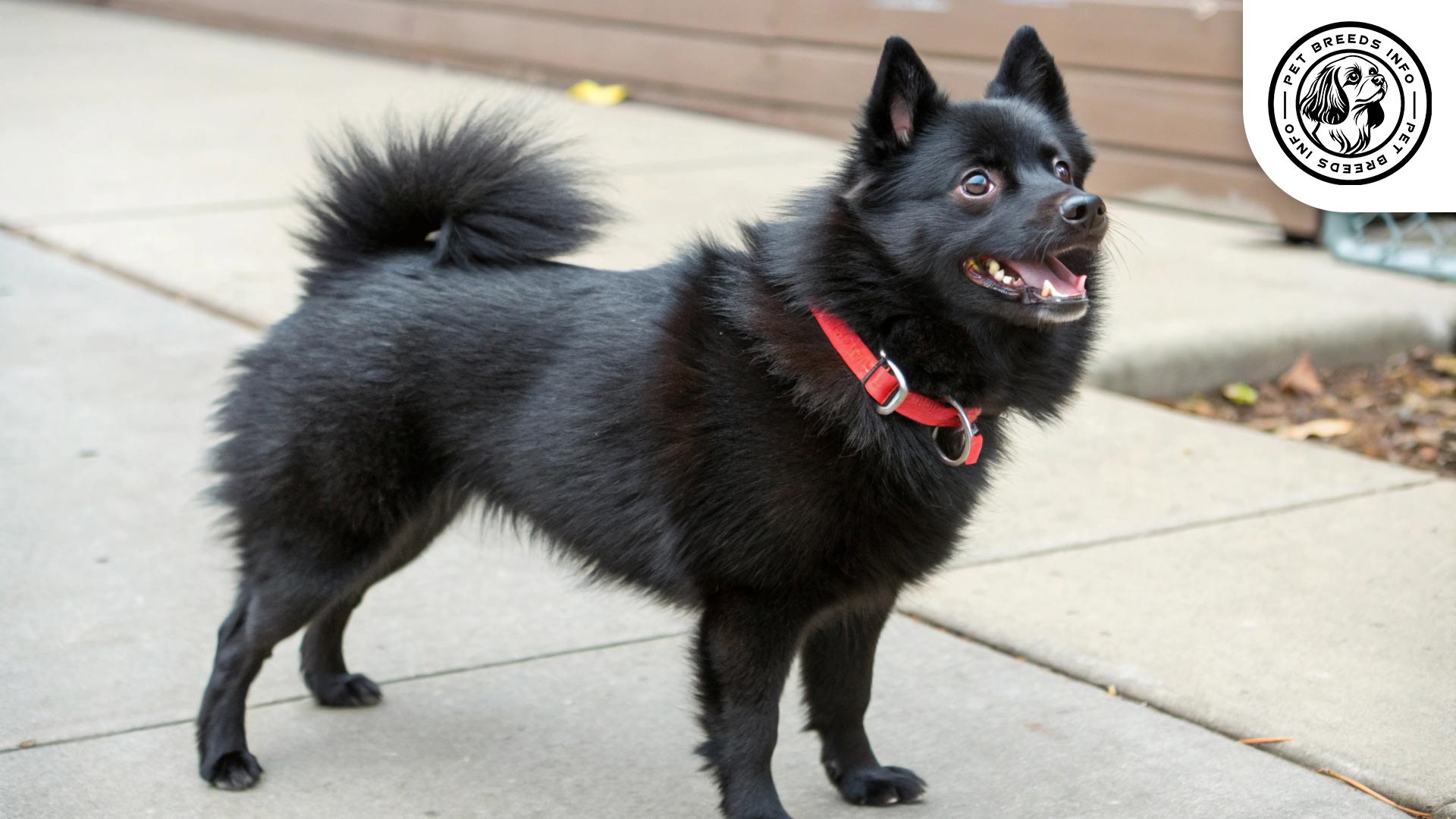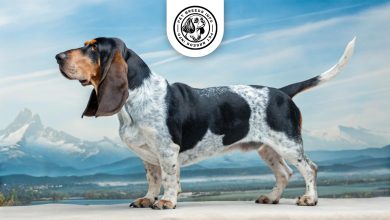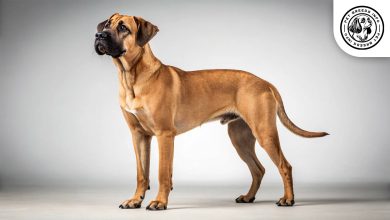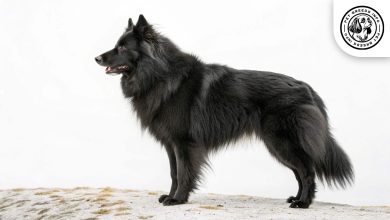Schipperke Dog Breed: Size, Health, Price & Personality
General Introduction of the Breed
The Schipperke is a small breed of dog originating from Belgium. The name “Schipperke” means “little captain” in Flemish, reflecting the breed’s historical association with boats and ships.
This breed was developed in the late 17th century and became popular as a watchdog on barges and boats navigating Belgian waterways. It was also used for vermin control due to its keen hunting instincts and high energy levels.
Table of Contents
| Color | Always black |
| Weight | 12-16 pounds (5.4-7.3 kg) |
| Lifespan | 12-16 years |
| Diet | High-quality, balanced diet (kibble, wet food, or raw). Portion control is essential. Avoid toxic foods. |
| Care | Regular exercise, weekly brushing (more during shedding), routine hygiene (nails, ears, teeth). |
| Health | Prone to hip dysplasia, luxating patella, PRA, epilepsy, and hypothyroidism. |
| Nature | Intelligent, energetic, loyal, independent, can be stubborn, reserved with strangers. |
| Price | $1,000 – $2,500 (from reputable breeder) |
Physical Characteristics
The Schipperke is a small but solidly built dog. Males typically stand between 11-13 inches (28-33 cm) at the shoulder and weigh around 12-16 pounds (5.4-7.3 kg), while females are slightly smaller.
The breed has a thick double coat, which is always black. The coat is dense, slightly longer around the neck to form a mane, and has distinct “trousers” on the hindquarters.
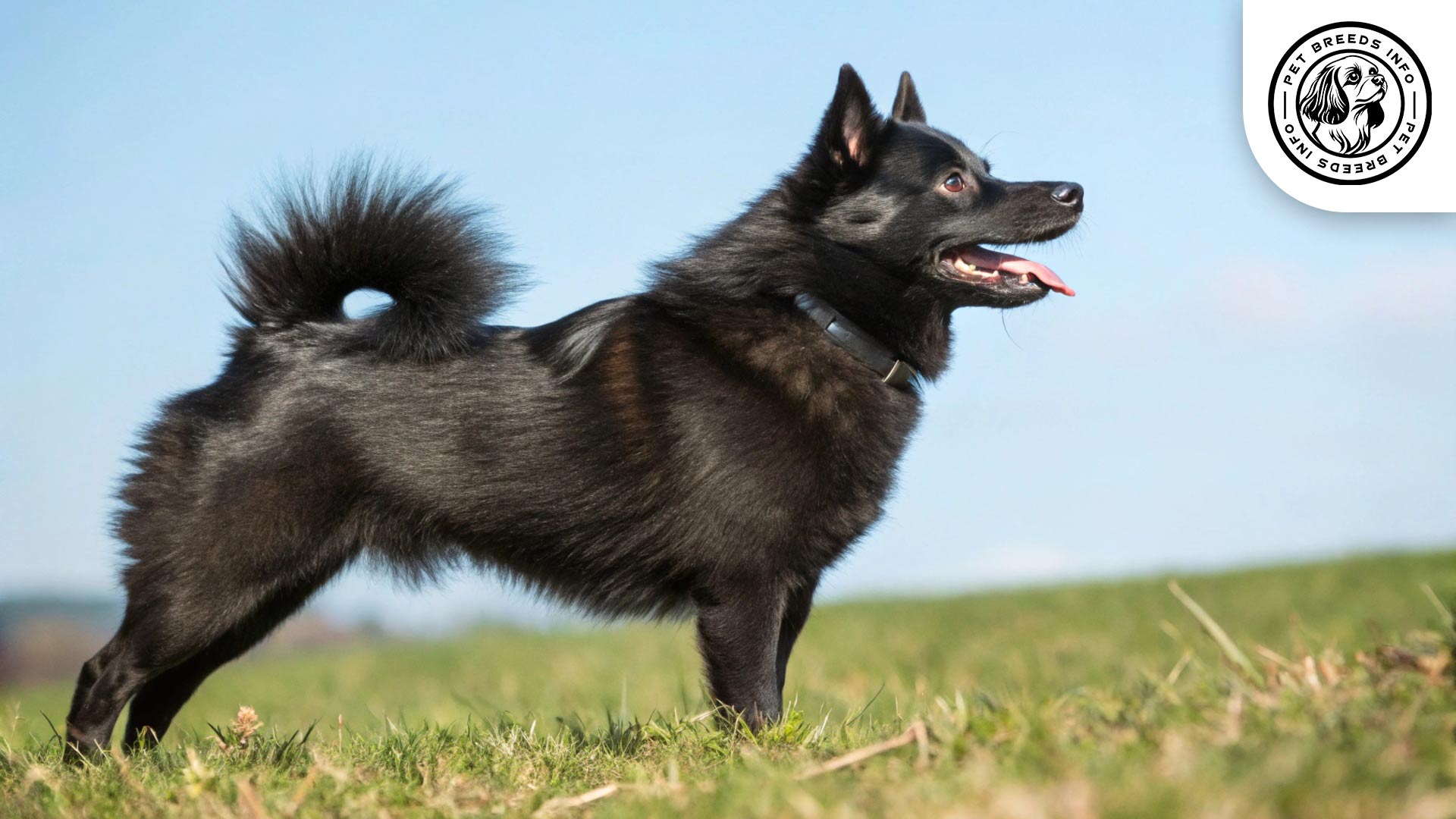
The eyes are small, dark, and almond-shaped, giving the dog an alert expression. They have erect, triangular ears that are positioned high on the head.
The tail may be naturally absent, docked, or full, depending on the region and breeding standards. A distinctive feature of the Schipperke is its fox-like face and a robust, compact body.
Read More: Samoyed Dog
Personality and Temperament
The Schipperke is highly intelligent and quick to learn, making it an excellent companion for experienced dog owners.
This breed possesses high energy levels and requires plenty of play and exercise to stay happy and healthy.
Schipperkes form strong bonds with their owners and are fiercely loyal. However, they can be independent and occasionally stubborn.
They are generally friendly but may be reserved around strangers. They get along well with children but require socialization for smooth interaction with other pets.
Due to their strong prey drive, they may chase small animals, making supervision essential when introducing them to other household pets.
Schipperkes are sensitive to changes in their environment and may become anxious if left alone for long periods.
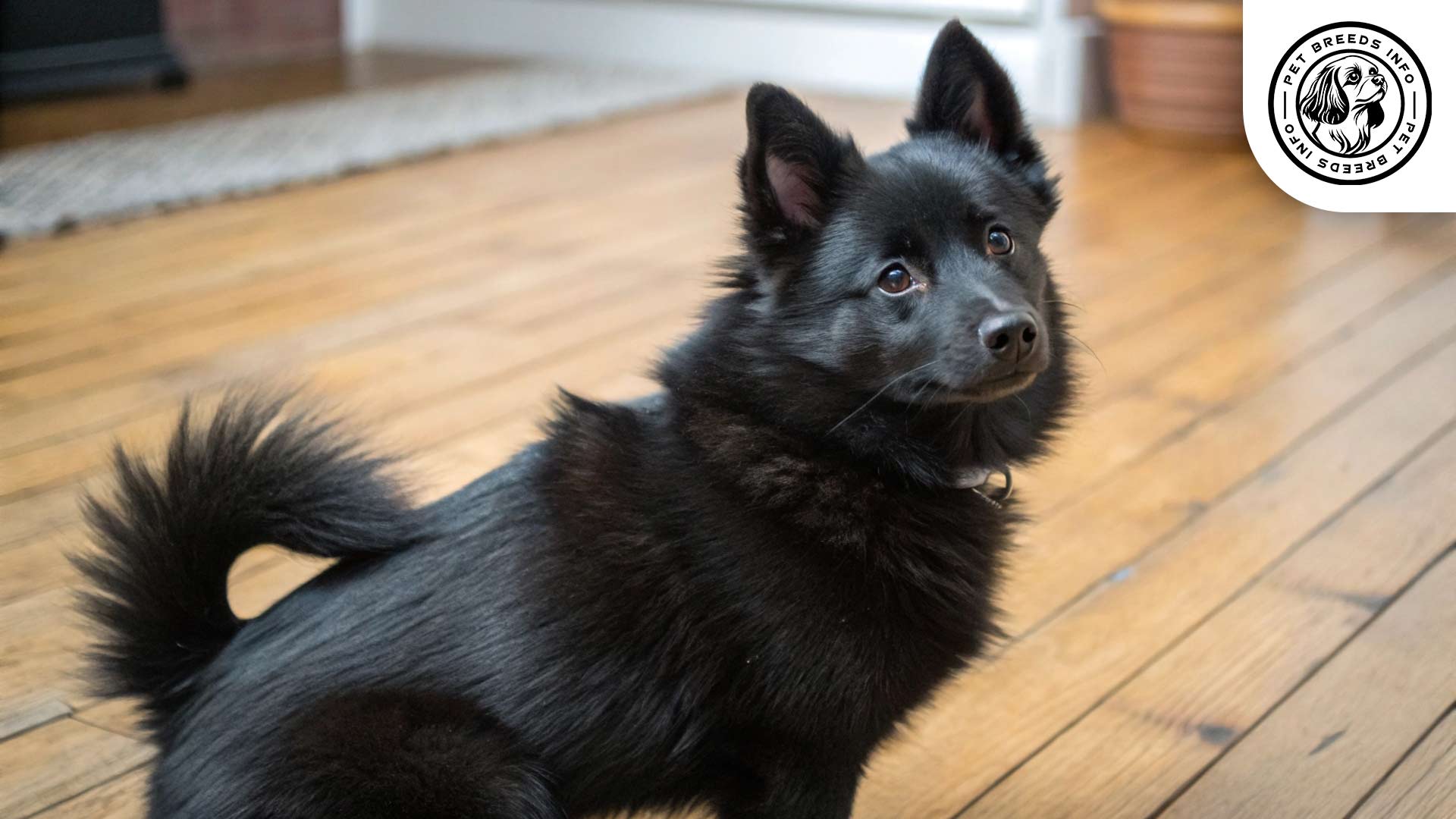
Care and Maintenance Requirements
The Schipperke is an active dog that requires regular exercise, such as daily walks, play sessions, and mental stimulation.
It can adapt well to apartment living if given enough exercise, but it thrives in homes with access to a secure yard.
The breed’s thick coat sheds moderately year-round and heavily during seasonal shedding periods. Weekly brushing is typically sufficient, but more frequent grooming is necessary when shedding increases.
Schipperkes are relatively hardy and can tolerate cold weather well, but they may struggle in extreme heat and require shade and hydration.
Routine hygiene care, including nail trimming, ear cleaning, and regular teeth brushing, is necessary to maintain overall health.
Diet and Nutrition
A high-quality, balanced diet consisting of dry kibble, wet food, or a raw diet can be suitable for the Schipperke.
The breed does not have specific dietary restrictions, but portion control is essential to prevent obesity.
Toxic foods such as chocolate, grapes, onions, and fatty foods should be strictly avoided.
Meals should be divided into two portions daily to maintain a healthy metabolism and digestion.
Read More: Saluki Dog
Health and Common Medical Issues
The Schipperke is generally a healthy breed but is prone to certain genetic conditions, such as hip dysplasia, luxating patella, and progressive retinal atrophy (PRA).
They may also experience problems like epilepsy and hypothyroidism.
The breed has an average lifespan of 12-16 years with proper care.
Routine vet check-ups and vaccinations, along with parasite prevention measures, are crucial for maintaining good health.
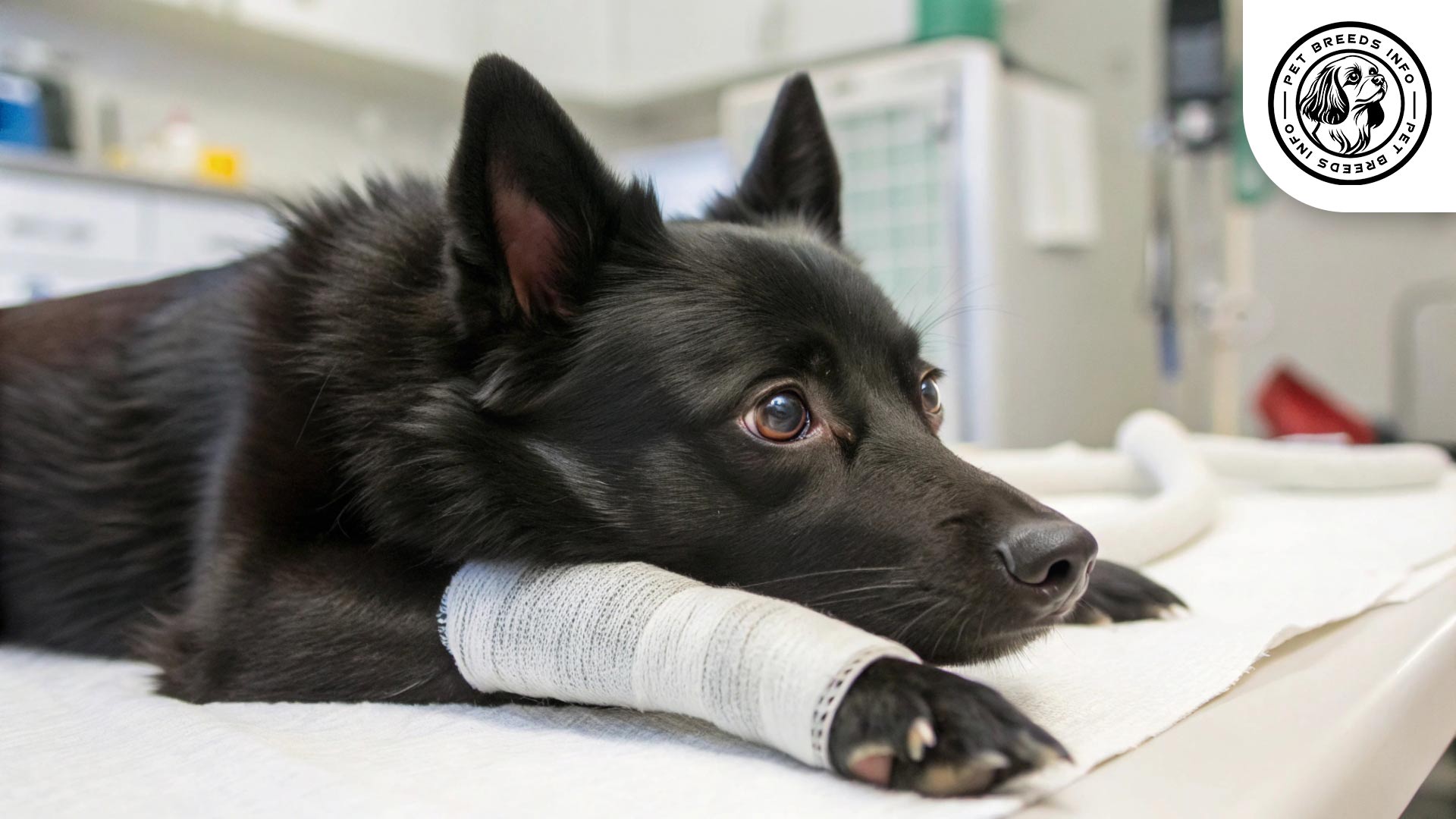
Training and Behavior Management
Schipperkes are intelligent but can be stubborn, requiring consistent and patient training.
Positive reinforcement methods such as treats, praise, and playtime work best with this breed.
Early socialization and obedience training are essential for preventing behavioral issues.
They respond well to structured training sessions but may develop undesirable behaviors if not given enough mental stimulation.
Interaction with Other Animals and Humans
Schipperkes can be excellent companions for children if properly socialized and taught to respect boundaries.
They usually get along well with other pets but may show dominance toward unfamiliar animals.
The breed is well suited for both families and individuals, but it thrives in an environment where it can receive sufficient attention and companionship.
While independent, Schipperkes prefer to be near their owners and may develop separation anxiety if left alone frequently.
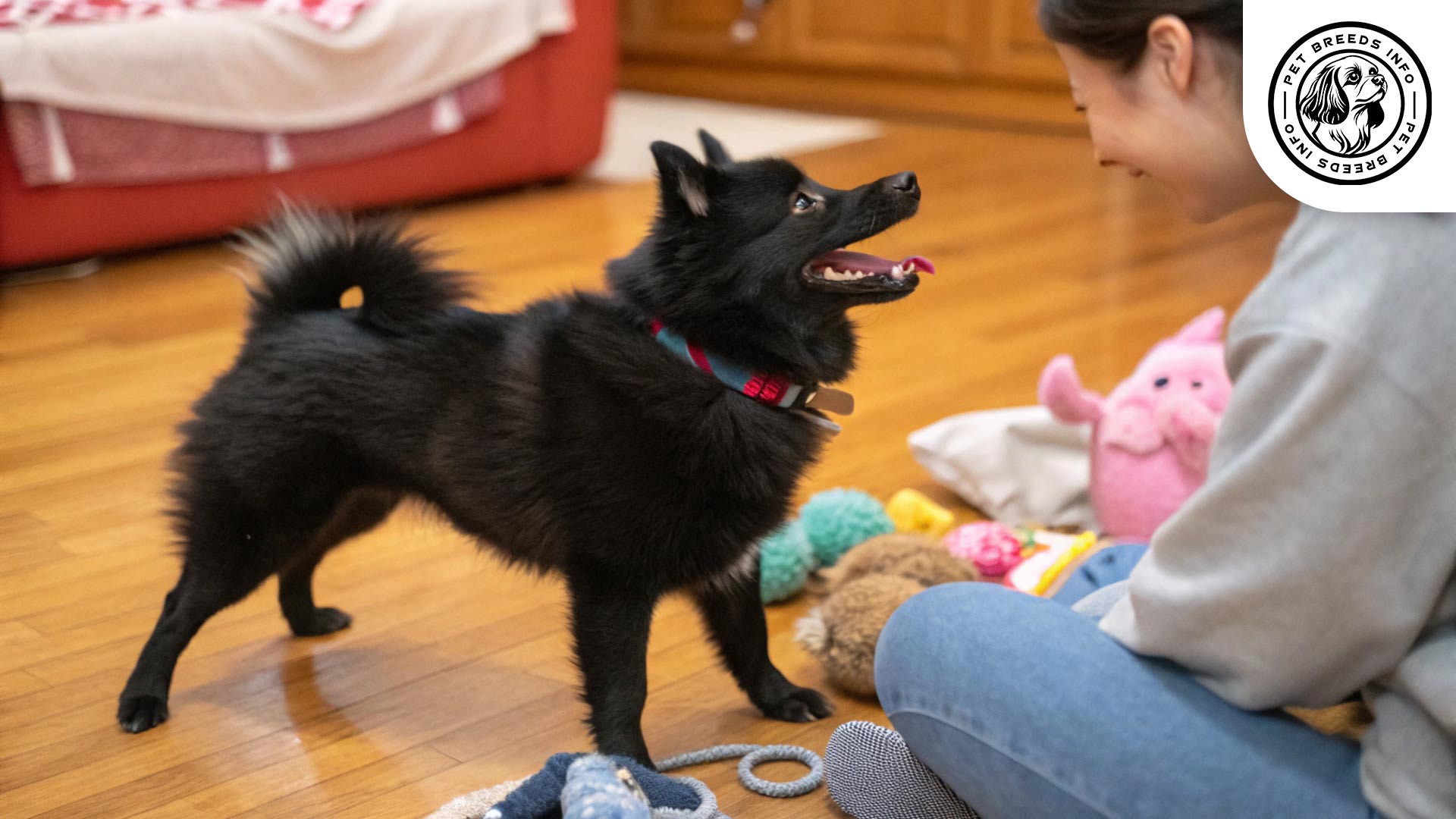
Price and Availability
The price of a Schipperke puppy can vary based on lineage, breeder reputation, and location. Expect to pay between $1,000 and $2,500 from a reputable breeder.
Potential owners should research breeders carefully and seek health certifications when purchasing a puppy.
Adopting from shelters or Schipperke rescue organizations is another excellent option, often at a lower cost.
Read More: Saint Bernard Dog
Conclusion and Final Thoughts
The Schipperke is a lively, intelligent, and loyal breed that thrives in a loving and active household.
It is suitable for experienced dog owners who can meet its training and exercise needs.
Before choosing a Schipperke, potential owners should consider its high energy, grooming requirements, and need for companionship.
With proper care and attention, the Schipperke makes a fantastic lifelong companion.
FAQ
Is the Schipperke a good family dog?
Yes, Schipperkes can be excellent family dogs. They form strong bonds with their owners and are loyal. However, early socialization is crucial, especially with children and other pets. They thrive in environments where they receive plenty of attention and interaction.
What are the common health issues for Schipperkes?
While generally healthy, Schipperkes are prone to certain genetic conditions, including hip dysplasia, luxating patella, progressive retinal atrophy (PRA), epilepsy, and hypothyroidism. Regular vet check-ups and preventative care are important.
How much grooming does a Schipperke require?
Schipperkes have a thick double coat that sheds moderately year-round, with heavier shedding during seasonal changes. Weekly brushing is usually sufficient, but more frequent grooming is needed during shedding periods. Routine hygiene care, such as nail trimming, ear cleaning, and teeth brushing, is also necessary.
Are Schipperkes easy to train?
Schipperkes are intelligent but can be independent and stubborn. Consistent and patient training is essential. Positive reinforcement methods, such as treats and praise, work best. Early socialization and obedience training are highly recommended.
